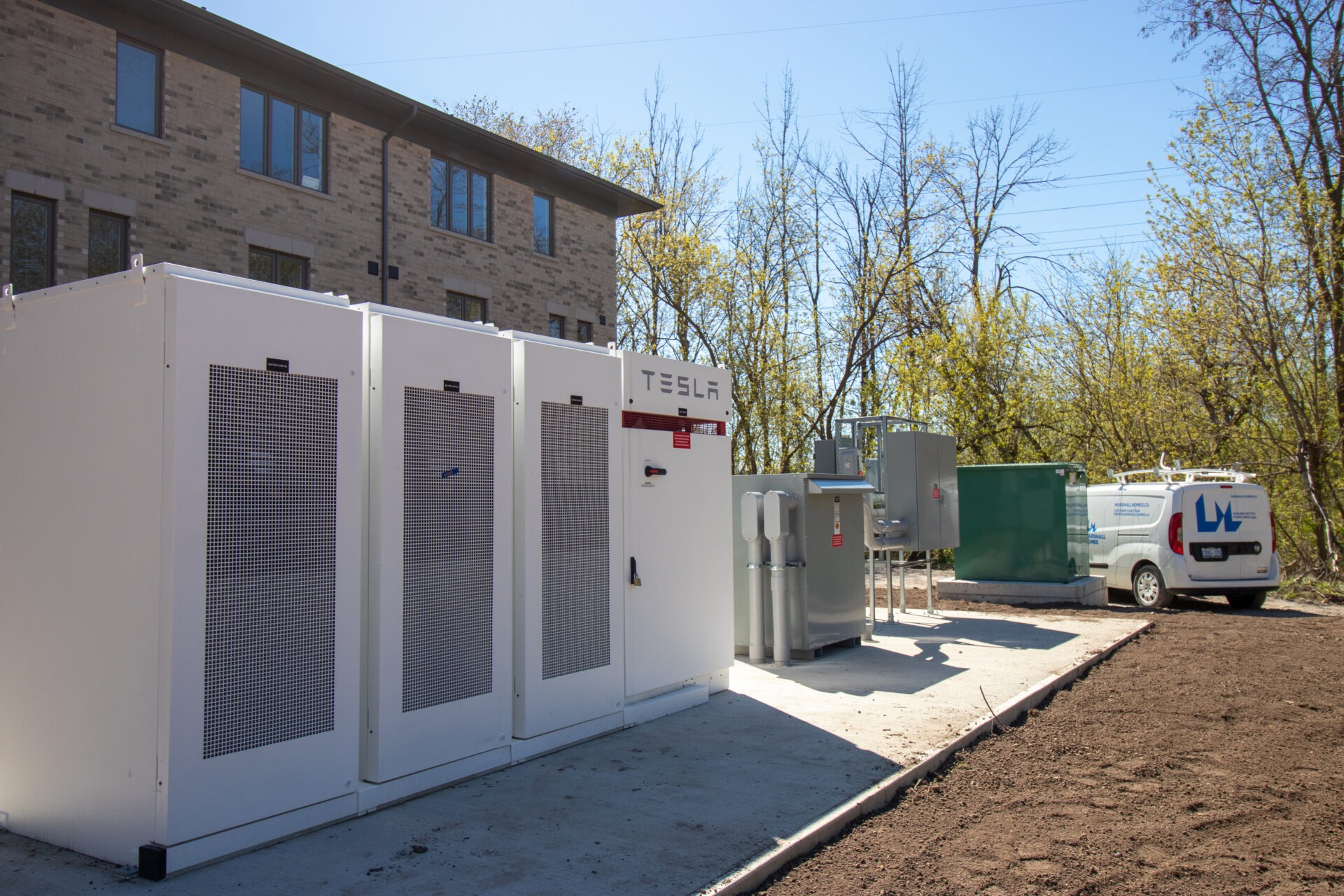
Tesla Powerpacks and Solar Panels Enables Off-Grid Housing Project in Canada

Madhouse Advertising
Opus One Solutions, Elexicon Energy, Marshall Homes, and the Independent Electricity System Operator (IESO) have come together to create one of the first preplanned, nested microgrid residential communities in Canada, powered by solar panels and Tesla Powerpacks — reports The Weather Network.
Tesla’s Powerpack is a utility-scale rechargeable energy storage system that’s designed to store large amounts of power for off-grid operation and supplemental power systems.
Where the Powerwall is an energy storage solution for residential customers, the Powerpack serves the same purpose but at the commercial/utility level. Earlier this year, Tesla Powerpacks were deployed at the world’s largest solar farm in Dubai.
The pilot microgrid project, known as Altona Towns, is located one hour outside of Toronto in Pickering, Ontario, and consists of 27 fully occupied houses.
A microgrid is a small, standalone energy grid that is connected to the local power grid but can also disconnect from it and function independently.
At Altona Towns, solar panels installed along the roofs of one of the housing blocks generate around 10% of the power used by the entire community. The excess energy from the solar power generation system is stored by the Tesla Powerpacks onsite, which then serve as a backup power supply when the community is disconnected from the grid.
“When the traditional grid experiences a power outage, such as during a storm,” or “a car hits into the pole, the microgrid is able to disconnect from the grid and maintain its own stability of operations,” Joshua Wong, CEO of Opus One Solutions, told The Weather Network.
“That to us is really the ultimate form of energy reliability and resiliency.”
Altona Towns was built with the goals of sustainability and emissions reduction. All of the homes are equipped with electric vehicle charging stations and smart metering, and the community has an integrated distribution energy service platform that can be used to manage parts of the microgrid.
The companies involved in this project hope Altona Towns will serve as an example of what sustainable communities could look like in the future, and spark interest in smart grid technology across Canada.

